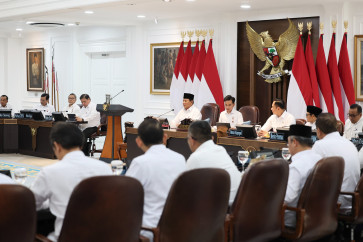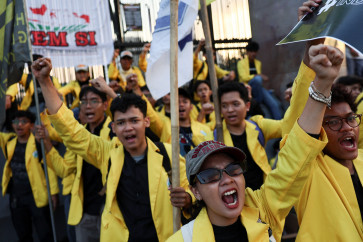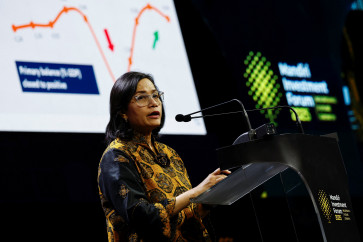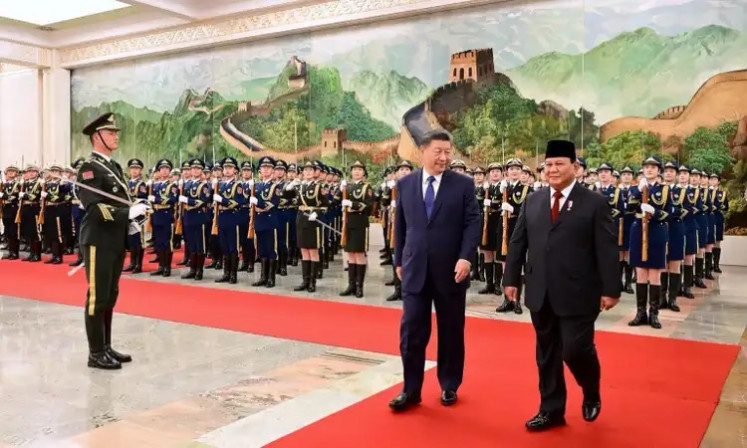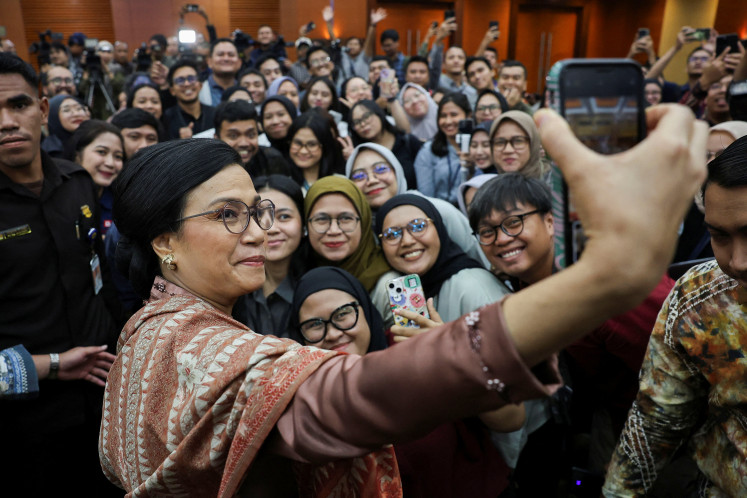Popular Reads
Top Results
Can't find what you're looking for?
View all search resultsPopular Reads
Top Results
Can't find what you're looking for?
View all search resultsRamadhan, a month of moderation
Ramadhan, the holy fasting month for Muslims, is coming up
Change text size
Gift Premium Articles
to Anyone
R
amadhan, the holy fasting month for Muslims, is coming up. All over the world, Muslims welcome the blessed month with joy and happiness. Muslims will fast from dawn to dusk, to remind themselves of the pains of deprivation that the unfortunate undergo when there is no food and water.
It should make Muslims empathic toward the poor, particularly by observing moderation in eating and drinking. Such moderate behavior should continue during other months as well.
However, the true virtue of Ramadhan is in a deplorable state of neglect. This is clearly seen from the way many Muslims spend and behave during the fasting month. In Indonesia, Muslims are unique in their way of welcoming Ramadhan by shopping.
Non-Muslims have questioned why Muslims consume and spend more during the month in which they are supposed to cut back and be moderate.
Numerous sales tactics are employed to influence Muslim consumers. Those who cannot control their desires fall prey to unscrupulous traders. When they run out of cash, they resort to credit cards. It is the same thing year after year as Ramadhan has been transformed into a month of big business.
The consumptive behavior among Muslims during Ramadhan is largely linked to their failure to curtail desire. Some buy clothing and others more than they need apart from changing their curtains and furniture. Some even buy new cars to visit their hometowns (mudik) in style.
Such people want everything new without thinking of their financial capacity and the consequences of overspending. Those patronizing the Ramadhan bazaars buy various delicacies, more than needed and a big portion of the purchase often ends up in the dust bin. Though Ramadhan teaches Muslims to practice moderation in every aspect, the extravagance seems to be a hard habit to overcome.
This wrong emphasis on Ramadhan of overshadowing the da'wah (Islamic propagation) with commercialism must be put to an end by curtailing our spending during Ramadhan and adopting a sustainable way of life.
The money saved could be used for expenses during Idul Fitri, locally known as Lebaran, including in covering the cost of fuel to return to hometowns and fulfill other needs.
If possible, start saving from the beginning of the year for the festive season and set a target for the amount that you want to save. This would ensure consumers are not financially burdened during the holiday season. Many consumers spend all their savings, leaving little left to pay off credit cards, bills and mortgages. In fact, many have to borrow to celebrate Lebaran.
Thus, saving ahead of the holiday and being thrifty during it must become habits to avoid financial pitfalls.
Muslims could also take advantage of Ramadhan to quit unhealthy habits like smoking. Smokers seek ways to quit smoking and often fail. Ramadhan would be the ideal time to quit the habit as few would be seen lighting up after lunch.
Indonesian Muslims are fortunate in that they can fulfill their Ramadhan obligations in a peaceful atmosphere. Muslims in some other countries are in humanitarian crises or trapped in war zones where getting food for breaking the fast and having sahur (the pre-dawn meal) would be an arduous daily struggle.
Wishing you a very happy Ramadhan.
The author is a freelance writer living in Padang.


